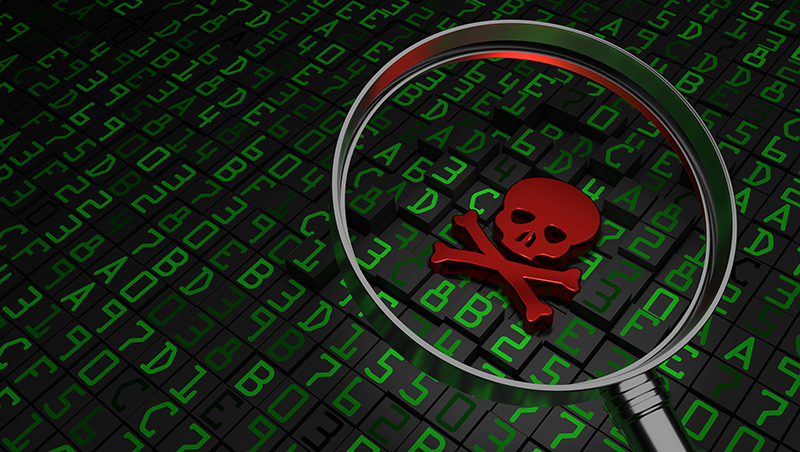MacBook users warned against EvilQuest ransomware
The malware aims to encrypt macOS devices, which are typically less affected by ransomware


Security researchers have warned they’ve spotted a new ransomware variant that targets macOS devices in the wild.
According to Varonis’s February 2021 Malware Trends Report, EvilQuest, also known as ThiefQuest and Mac.Ransom.K, is ransomware that aims to encrypt macOS devices, which are typically less affected by this type of threat.
Ben Zion Lavi, a researcher at Varonis, said another unusual detail about EvilQuest that stands out compared to other ransomware variants is it uses symmetric encryption all the way, as opposed to using an asymmetric key in at least one stage of the encryption.
“This means that the key that was used to encrypt the file can be used to decrypt it, thus making the challenge of decrypting the files a lot easier,” Lavi said.
According to researchers, the ransomware includes data exfiltration functionality that uses three external Python scripts to send out HTTP post requests. It also includes additional functionality that many ransomware variants don’t normally have.
“For example, it looks for SSH keys that might allow the attacker to interactively logon into a victim’s device. It also looks for trusted certificates, which can allow the attacker to access sites without causing security warnings,” said Lavi.
Researchers also found evidence of key-logging functionality in parts of the code. These code segments call API functions aimed at finding low-level hardware events.
Sign up today and you will receive a free copy of our Future Focus 2025 report - the leading guidance on AI, cybersecurity and other IT challenges as per 700+ senior executives
“We can find evidence that the ransomware is still being developed and is not yet in its final form. The decryption functionality, for example, is not completely implemented. Because the decryption routine is not called anywhere inside the code, victims will surely not be able to decrypt their files, even if they pay the ransom,” said Lavi.
Researchers also warned that an Iranian hacking group named “Foudre” had recently resurfaced. The group dates back to as early as 2007 and exfiltrated data from organizations and VIPs.
“The APT, which was mostly but not exclusively used against targets in Europe and North America, consists of several stages. The first stage includes the victim opening a crafted document that contains macro code, which self-extracts archives with “Foudre” components,” said Lavi.
Lavi added that the malware the hackers used leverages domain generating algorithms (DGA), a technique that generates and tries to communicate with many domain names, but only one of them is the real C2 server domain name. This allows the attacker to hide their identity and maintain the C2 server’s clean reputation longer.
Rene Millman is a freelance writer and broadcaster who covers cybersecurity, AI, IoT, and the cloud. He also works as a contributing analyst at GigaOm and has previously worked as an analyst for Gartner covering the infrastructure market. He has made numerous television appearances to give his views and expertise on technology trends and companies that affect and shape our lives. You can follow Rene Millman on Twitter.
-
 Redefining resilience: Why MSP security must evolve to stay ahead
Redefining resilience: Why MSP security must evolve to stay aheadIndustry Insights Basic endpoint protection is no more, but that leads to many opportunities for MSPs...
-
 Microsoft unveils Maia 200 accelerator, claiming better performance per dollar than Amazon and Google
Microsoft unveils Maia 200 accelerator, claiming better performance per dollar than Amazon and GoogleNews The launch of Microsoft’s second-generation silicon solidifies its mission to scale AI workloads and directly control more of its infrastructure
-
 There’s a dangerous new ransomware variant on the block – and cyber experts warn it’s flying under the radar
There’s a dangerous new ransomware variant on the block – and cyber experts warn it’s flying under the radarNews The new DeadLock ransomware family is taking off in the wild, researchers warn
-
 Hacker offering US engineering firm data online after alleged breach
Hacker offering US engineering firm data online after alleged breachNews Data relating to Tampa Electric Company, Duke Energy Florida, and American Electric Power was allegedly stolen
-
 Cybersecurity experts face 20 years in prison following ransomware campaign
Cybersecurity experts face 20 years in prison following ransomware campaignTwo men used their tech expertise to carry out ALPHV BlackCat ransomware attacks
-
 15-year-old revealed as key player in Scattered LAPSUS$ Hunters
15-year-old revealed as key player in Scattered LAPSUS$ HuntersNews 'Rey' says he's trying to leave Scattered LAPSUS$ Hunters and is prepared to cooperate with law enforcement
-
 The Scattered Lapsus$ Hunters group is targeting Zendesk customers – here’s what you need to know
The Scattered Lapsus$ Hunters group is targeting Zendesk customers – here’s what you need to knowNews The group appears to be infecting support and help-desk personnel with remote access trojans and other forms of malware
-
 Impact of Asahi cyber attack laid bare as company confirms 1.5 million customers exposed
Impact of Asahi cyber attack laid bare as company confirms 1.5 million customers exposedNews No ransom has been paid, said president and group CEO Atsushi Katsuki, and the company is restoring its systems
-
 The US, UK, and Australia just imposed sanctions on a Russian cyber crime group – 'we are exposing their dark networks and going after those responsible'
The US, UK, and Australia just imposed sanctions on a Russian cyber crime group – 'we are exposing their dark networks and going after those responsible'News Media Land offers 'bulletproof' hosting services used for ransomware and DDoS attacks around the world
-
 A notorious ransomware group is spreading fake Microsoft Teams ads to snare victims
A notorious ransomware group is spreading fake Microsoft Teams ads to snare victimsNews The Rhysida ransomware group is leveraging Trusted Signing from Microsoft to lend plausibility to its activities
